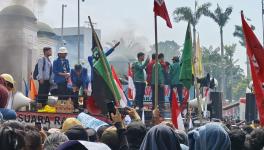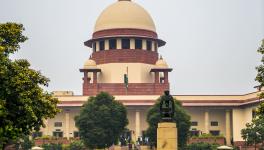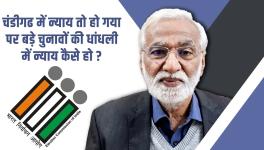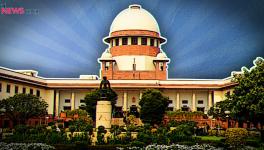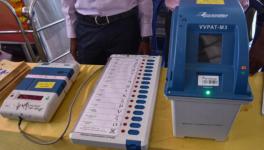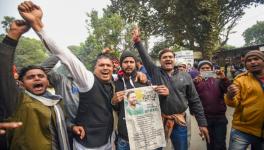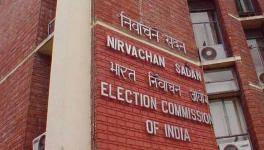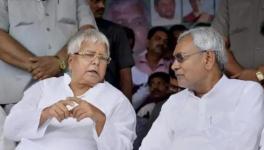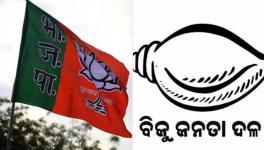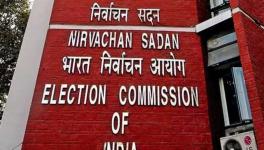Algeria: What Does the Cancellation of Elections Mean to the Protest Movement?
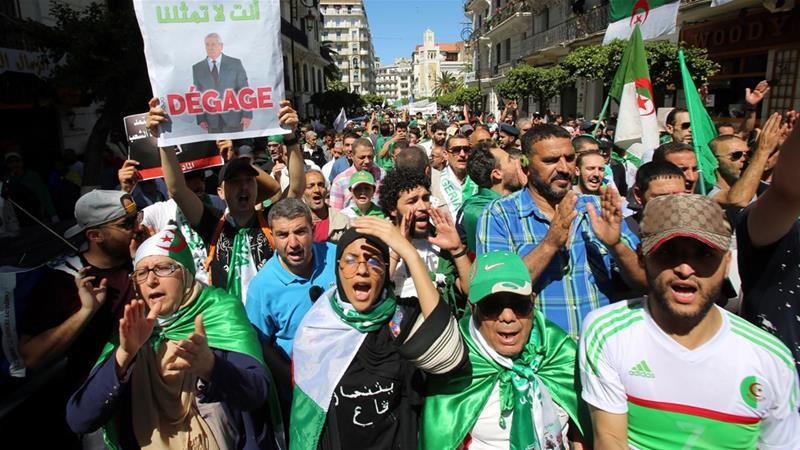
Demonstrators had been calling for elections to be delayed and for Bensalah to step down. Photo: Ramzi Boudina/Reuters
Earlier this week the Constitutional Council in Algeria cancelled the presidential election that was scheduled for July 4, and left it up to the interim president, Abdelkader Bensalah, to set the new date. On Thursday, Bensalah called for an “inclusive dialogue” between political parties to prepare for elections.
The protest movement, which forced Abdelaziz Bouteflika’s resignation from the presidency on April 2 after weeks of mass-demonstrations, had called for a boycott of the elections. They argued that an election overseen by the same regime which they are trying to oust will only lead to its re-consolidation.
Moreover, the protesters are also demanding a transition period led by people approved by consensus, in the course of which they seek to completely root the ruling regime from state structures, before holding elections.
The election was scheduled on July 4 by the speaker of the upper house, Abdelkader Bensalah on April 10, one day after he was appointed as the interim president to temporary replace Bouteflika. Article 102 of the Constitution was invoked which states that after a president is forced to resign by the parliament on grounds of his or her incapacity, elections should be held within 90 days of the interim government.
Bensalah’s appointment infuriated the protesters as he was a close ally of Bouteflika, representing the interests of the same coterie of businessmen, army generals and politicians who are perceived to be wielding real economic and political power behind the president’s face.
The protesters have continued to demonstrate every week demanding a complete ousting of the regime. Despite having roots in Algeria’s struggle for independence, it has since given into corruption and nepotism which is perceived to be taking a toll on the living standards of the masses.
“No elections under the gang’s rule,” was one of the popular slogans heard during the mobilizations in May, where tens of thousands of students took to the streets, calling for the resignation of Bensalah, and carrying banners that called for a boycott of the election.
A former MP from the Socialist Forces Front was quoted by Middle East Monitor as saying at the time that the only way forward under the circumstances was to continue with mass demonstrations until sufficient pressure can be exerted on the interim government to put in place the necessary mechanisms to ensure the integrity of the elections.
Moreover, many have pointed out that three months was not enough time for the protesters to form a cohesive electoral group with strength to contest in the elections with the establishment. As such they demand transition period, with people chosen by the protest group’s consensus at the forefront. During the transition period they will work to eliminate the corruption and nepotism ingrained in the state structures in favor of the ruling regime.
The military establishment which decided to abandon Bouteflika under the pressure of mass-demonstrations, played a key role in forcing his resignation. However, they were quick to realign their interests in favor of the establishment and against the protesters. Once protesters began to call for a boycott of the elections, top military officials like Lieutenant General Gaid Salah strongly condemned the protesters and urged for them to go forward with elections.
In the last week of May, the Algerian Interior Ministry had announced that 77 candidates had submitted their letters of intention to run for presidency. 74 of these were independent candidates, mostly unknown to the masses.
As the protesters continued to reject the election, only two candidates, mostly unknown, finally registered. On June 2, the Constitutional Council announced a decision to cancel the elections, stating that it was impossible to hold one under the circumstances, and asked the interim president to reschedule it for a later date.
This cancellation may prove to be a partial victory to the protesters as it will be a breach of Article 102, and it does not make any provision for extension of the transitional period over 90 days. As such, it cannot be evoked anymore to limit the possibilities of achieving the changes envisioned by the protest movement.
What may be invoked, however, is the Article 7 of the Constitution – which states that “the people are the source of all power” and it to them that the “national sovereignty belongs exclusively”. “[T]he people”, article 8 adds, “exercise their sovereignty through the institutions they give themselves” – leaving scope for struggles on the streets to determine the way forward when Article 102 has failed.
Get the latest reports & analysis with people's perspective on Protests, movements & deep analytical videos, discussions of the current affairs in your Telegram app. Subscribe to NewsClick's Telegram channel & get Real-Time updates on stories, as they get published on our website.









